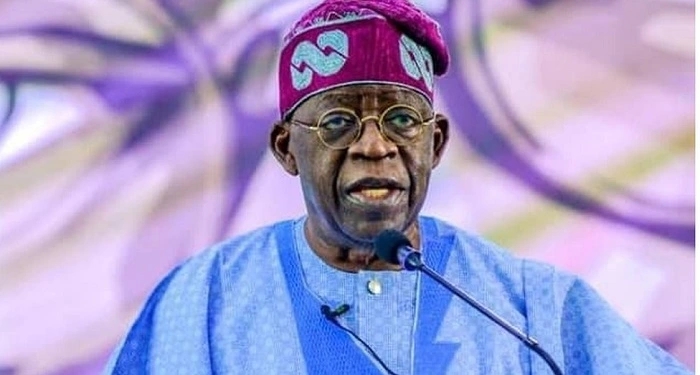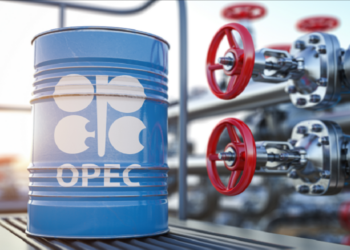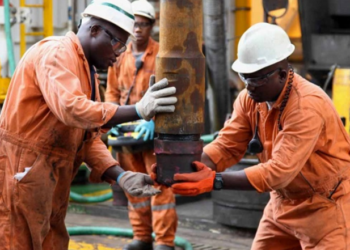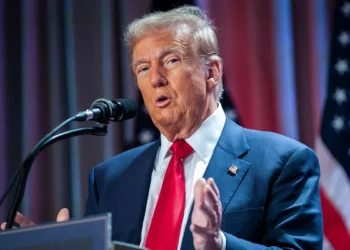Nigeria’s oil and gas sector has been plagued by a lack of investments, lack of transparency, and overall ineffectiveness. Some experts believe that this is a result of a lack of commitment by the government to ensure that the sector works for everyone. Some experts cite regulatory mismatch, bureaucratic bottlenecks instituted corrupt practices among stakeholders as well as a lack of accountability as reasons why the sector is not as effective as it could be.
In a recent conversation with Nairametrics, an Energy Policy Expert, Etulan Adu told Nairametrics that the Nigerian government and stakeholders need to focus on a few things to fix the oil and gas sector.
According to him, the existing oil and gas assets in the country need to be protected to ensure production continuity. Adu advocates for an attractive business climate where decarbonization is practiced and a strong political will to compete in the global oil and gas industry. He believes that this is what is paramount for the Nigerian masses to enjoy the gains of being from an oil and gas-producing nation.
Adu suggested the following strategies:
- There is a need for sustaining the drive to curb oil theft, bunkering, and pipeline vandalism, to ensure an upward trend in our production figures in accordance with the OPEC quota. There must also be proper monitoring and regulatory compliance of various indigenous oil companies operating in marginal fields.
- Tinubu should expedite the rehabilitation of the four state-owned refineries and privatize them to reputable downstream companies.
- The fuel subsidy removal should be implemented in stages while ensuring the availability of petroleum products, and proper management of the petrol pricing framework to ensure uniformity of the prices of petrol across the nation.
- Sector stakeholders must organize roadshows for investment in more liquefied natural gas (LNG) facilities, particularly with floating liquefied natural gas (FLNG) as a faster means of bringing Nigeria’s gas reserves to the global market.
- The new administration should ensure proper management of Nigeria’s excess crude account (Sovereign Wealth Fund) and encourage more offshore exploration and upstream activities.
- Also, the new administration must tackle insecurity, to attract foreign investments, particularly from Asia, the Middle East, and mid-size independent oil companies from the United States.
- As the world pivots to renewables, it is essential for the Tinubu administration to walk the path of the green energy transition to remain relevant. Doing this alongside the production of oil and gas is challenging but there has to be a strategic approach. Examples such as Saudi Arabia and the United Arab Emirates can be used as case studies.
Also, Dan D. Kunle, an Energy Analyst who was a Privatization Advisor at the Bureau of Public Enterprise (BPE) from 2003 to 2007, told Nairametrics that after Tinubu is sworn in, he needs to immediately set up a team to review the restructuring of the oil and gas sector and the situation of the power sector structure of the country. He said:
“Today, Nigeria cannot produce 1.6 million barrels of crude per day, and we have close to 40 billion barrels of crude reserves. We cannot produce 22 million tons of liquefied natural gas (LNG) from Bonny when the capacity of Trains 1 to 6 is 22 million. We are doing only about 16 to 17 million because we do not have enough raw gas to flow to that plant to be liquefied.
“The new administration cannot make any headway with the NNPCL and the regulatory environment as it is today. We need to quickly rearrange and unbundle them into various business units and privatize them. They must call on all stakeholders to proffer solutions to the mess that has been made in the oil and gas sector. These solutions must be in line with global best practices and from those who have good knowledge of how the industry is supposed to work.
“Any new government will need to sit up and address these challenges. They will also need a government-to-government arrangement to attract Shell, ExxonMobil, Chevron, TotalEnergies, ENI, PetroChina, and Sinopec back to this country because they have deep pockets to develop oil and gas in accordance with the best practices of the world. Local investors in the upstream market do not have deep pockets.”
What you should know
Another factor contributing to the challenges in the oil and gas sector in Nigeria is the volatility of the global oil market, which can impact the country’s revenue from oil exports. The sector is also heavily dependent on foreign investment, which can be affected by global economic conditions and changes in policies and regulations in other countries.






















NNPCL as it is currently constituted cannot solve Nigeria Oil production problems, they will continue to short change the country, there is a need to further unboundle NNPCL, putting all different segments in one basket called (NNPCL) encourages curruption, indolence and loss of revenue for the federal government.
The earlier this is done the better.
Next unboundling should consider public Liability Companies for different NNPCL that will be unboundled.
I think the government should create many independent subsidiaries out of the current NNPCL. Why would Saudi oil industry be making profit, declaring bonus/dividends in billions of dollars, bringing new fields on board etc and NNPCL declining and reporting losses. Saudi oil industry surprised the whole world with it’s situation room recently. If you do that project in NNPCl, the bad guys will burn it down. Is it not Nigerians blowing wet gas into the refineries instead of dry gas thereby deliberately damaging it for their own gains in the product importation. Business. Is the not Nigerians that are damaging the electricity distribution system so generators could sell? Dangote should not spare any amount on security to preserve his refineries. Don’t be surprised, some Nigerians are not happy that the refinery is coming on board. It is bad business to them. We were told we consumed 170,000 barrels of crude per day. Dangote decides to build 650,000 barrels capacity. Enemies of progress are even saying it is not enough that importation must continue. Who do us like this! Who we offend?